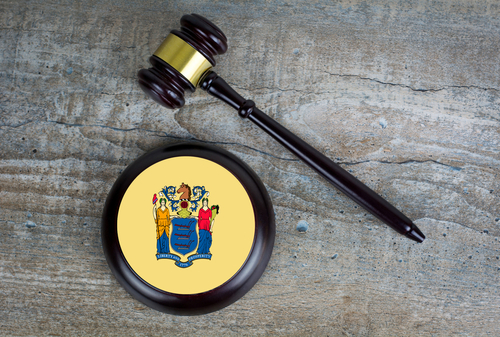28% of lawyers in this state considered leaving the profession because of mental health, burnout or stress

Image from Shutterstock.
Forty-nine percent of surveyed lawyers in New Jersey have reported moderate to high levels of burnout, a percentage that is nearly twice as high as the level of burnout in the general U.S. working population, according to a survey by a task force of the New Jersey State Bar Association.
The November 2022 survey, released April 10, found that 28% of the state’s lawyers have considered leaving the profession because of mental health, burnout or stress. Twenty-three percent reported a high prevalence of depressive symptoms, and 10% reported thoughts of suicidal ideation.
“The alarm bells are sounding” as a result of the findings of the survey, which received responses from 1,643 New Jersey lawyers, according to an introduction to the survey report by Jeralyn L. Lawrence, president of the NJSBA.
Other concerning findings include:
- • 68% of surveyed lawyers reported feeling anxious in the past two weeks.
- • 56% reported a high prevalence of alcohol misuse.
- • 49% reported feelings of isolation.
Factors that contribute to burnout, anxiety and depression include lack of boundaries for down time, feeling uncomfortable about taking time off to address well-being, being younger than age 34, and having three years or less of practice experience, according to survey findings.
Lawyers who worked seven or more weekend days per month were six times as likely to report burnout than those who worked less than one weekend day. And lawyers who worked an average of 15 to 20 hours per week outside normal business hours were eight times as likely to report burnout than those who reported rarely or never working outside normal business hours.
Despite the survey’s gloomy findings, 51% of the survey respondents said they were enthusiastic about being a lawyer often, very often or always.
Among practicing lawyers, associates were the least enthusiastic about law practice. Most enthusiastic were in-house counsel, prosecutors, public defenders and public-interest lawyers.
The state bar’s Putting Lawyers First Task Force conducted the survey. The task force made several recommendations. They include:
- • Creating an ongoing working group of the judiciary and organized bar to promote wellness efforts through education, training and pipeline programs.
- • Removing a question about would-be lawyers’ mental health from the application for bar admission. The NJSBA cited the task force recommendation when it asked the New Jersey Supreme Court to eliminate the question, according to a blog post by staff of the NJSBA.
- • Allow continuing legal education credit for well-being programs.
Law360 and Reuters are among the publications that covered the survey report.
Write a letter to the editor, share a story tip or update, or report an error.



